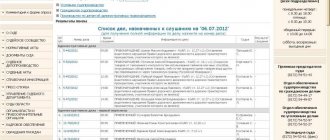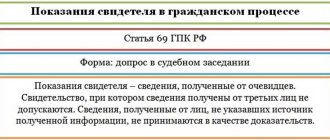New edition of Art. 257 Code of Criminal Procedure of the Russian Federation
1. When the judges enter, everyone present in the courtroom stands up.
2. All participants in the trial address the court, testify and make statements while standing. Deviations from this rule may be permitted with the permission of the presiding officer.
3. Participants in the trial, as well as other persons present in the courtroom, address the court with the words “Dear Court”, and the judge – “Your Honor”.
4. An employee of the compulsory enforcement authorities of the Russian Federation ensures the order of the court hearing and carries out the orders of the presiding judge. The requirements of an employee of the compulsory enforcement authorities of the Russian Federation are mandatory for persons present in the courtroom.
5. The trial is conducted in conditions that ensure the established order of the court hearing and the safety of participants in criminal proceedings. The actions of persons present in the courtroom and carrying out photographing, video recording and (or) filming, broadcast on radio, television or on the Internet, authorized by the court, must not violate the established procedure of the court session. These actions may be limited by the court in time and must be carried out in places specified by the court in the courtroom and taking into account the opinions of the persons participating in the case.
How does a court hearing in a civil case work?
A court hearing (SH) is a proceeding conducted in strict compliance with the rules of the Code of Civil Procedure of the Russian Federation in order to resolve disputes between the parties. By law, the parties to the proceedings are considered to be the plaintiff and the defendant. They can protect their interests independently or through legal representatives by proxy.
There can be several participants:
for example, when a plaintiff files a lawsuit against several defendants, or, conversely, a class action lawsuit is filed against one.
First, the case is prepared after the claim is accepted. The parties are invited to a conversation to clarify the circumstances or request additional documents. A preliminary court hearing may be scheduled to request evidence and other materials. Based on the results, a decision is made to assign the case to trial.
Let's look at the next steps in detail.
Opening of the court session
The presiding officer opens the court order, asks the secretary about the attendance of the participants and notification of all persons about the date of the hearing. If any of them is absent, the reasons for non-appearance are clarified.
Next, the composition of the court is announced: Full name. judge, secretary, prosecutor, expert, specialist, translator, participants or their representatives. The reason for the proceedings is explained.
Consideration of the case on the merits
This is the longest part. It all starts with the report of the judge or presiding judge. The opinions of the parties and third parties are heard. The sequence of studying the evidence is established.
What happens during this time:
- At the end of the report, the judge proposes to enter into a settlement agreement. Having agreed to this, the proceedings on the case are terminated and an appropriate ruling is made.
- Witnesses are questioned and expert opinions are examined.
- Stakeholders present their positions. If among the participants there are representatives of the prosecutor’s office or another government agency, they are given the floor first.
- Evidence is studied and presented to interested parties for review.
At the end, the prosecutor or other authorized person gives an opinion on the case.
Interrogation of witnesses
Witnesses are interviewed separately. Before the start of the interrogation, the court reminds of the responsibility for giving knowingly false testimony.
During the interview, the judge finds out their connection and relationship with the participants in the proceedings, as well as relevant circumstances. After the interrogation, the witness remains in the room.
New witnesses are not present at the hearing and are invited separately to exclude the possibility of their communication with those already interviewed.
Note! If a witness has given written testimony in advance but is absent at the hearing, that testimony will be read out. They are equated to evidence (Article 181 of the Code of Civil Procedure of the Russian Federation).
Examination of evidence
The procedure for examining evidence is determined after hearing the opinions of the parties. During the consideration, evidence is presented to the participants in the proceedings.
The inspection protocols drawn up at the location of the material evidence are announced. After the announcement, the participants have the right to give explanations (Article 183 of the Code of Civil Procedure of the Russian Federation).
In conclusion, the prosecutor or other authorized representative of the government agency gives a conclusion. The judge proposes to supplement the case materials. Subsequently, after studying the evidence, expert opinion, specialist consultations and questioning of witnesses, the court proceeds to the debate.
Expert opinion research
If an examination was appointed for the proceedings, the conclusion is examined on the SZ (Article 187 of the Code of Civil Procedure of the Russian Federation). The document is read out by the presiding officer in the absence of an expert.
If he is present at the hearing, the announcement of the conclusion rests with him. After this, interested parties have the right to ask him questions.
Specialist consultations
At the request of the parties or a court ruling, specialists are involved in the study of material or written evidence, the study of video and audio recordings.
The specialist provides technical assistance and advises on specific issues. Explanations are given orally or in writing and are attached to the case file (Article 188 of the Code of Civil Procedure of the Russian Federation).
Judicial debate
The participants or their representatives speak in the debate. The plaintiff is heard first, then the defendant.
After the hearing, they are given the right to make remarks; the defendant speaks last (Article 190 of the Code of Civil Procedure of the Russian Federation).
If the prosecutor is involved in the case, the first word is given to him.
Legal advice: during debates, be sure to justify your words with references to legislative norms. It is necessary to address the court, and not the participants in the process, and use the evidence already presented and examined to your advantage.
Decision-making
The court goes to the deliberation room to make a decision. After this, the presiding officer returns to the hall and announces it.
According to Art. 214 of the Code of Civil Procedure of the Russian Federation, copies of decisions are issued to the parties to the proceedings no later than 5 days from the date of issue. If the plaintiff or defendant did not appear at the last court hearing, copies are sent by registered mail with return receipt requested no later than 5 days from the date of acceptance.
If the document is drawn up in electronic form, with the permission of the participants it is published on the official website without making personal data public.
How long does the meeting last?
The duration can range from 5 minutes to several hours.
It all depends on the following circumstances:
- number of participants;
- involvement of experts or other persons;
- the defendant’s agreement or disagreement with the claims;
- complexity of the case;
- number of motions and objections.
On average, the main meeting takes 1-2 hours.
If we are talking about the total duration of legal proceedings, then everything depends on the specific case. The total review period is 2 months.
Disputes regarding the collection of alimony, reinstatement at work, challenging decisions of municipal authorities on the demolition of unauthorized buildings are considered within 1 month.
When using simplified proceedings, proceedings take up to 1 month; in special proceedings, cases can be considered in 5 days.
How is the protocol drawn up?
The secretary must keep a protocol reflecting all remarks during the hearing. If the secretary does not have time to reflect all the circumstances in the document, he uses an audio recording after the SZ and makes adjustments.
The minutes are signed by the secretary and the presiding officer. In some cases it is conducted by an assistant judge. The document is also given to production participants for review. If they are not satisfied with the content, they submit comments within 5 days after studying.
The consideration of comments is carried out by the judge who signed the protocol. To do this, he is given 5 days from the date of the appeal of the participants in the proceedings.
Appeal to the judge in a criminal trial
If there is a criminal proceeding, participants should obtain information about the standards of conduct in the Code of Criminal Procedure.
Article 257 of the Criminal Code of the Russian Federation
In the case when the meeting is chaired by a single judge, the speech of those present relating to his person must begin with the words “Your Honor.” There is a situation where a panel of judges is working on the process. Then the address “Dear Court” would be appropriate.
Who is participating in the meeting?
Each participant is assigned separate roles. Let's consider who is invited and why, what rights and responsibilities they have.
Plaintiff
A plaintiff is a citizen or legal entity whose rights have been violated. On his initiative, proceedings are initiated after the statement of claim is accepted.
During the proceedings, the plaintiff is entitled to:
- get acquainted with the case materials, make extracts;
- ask questions to other participants, witnesses, specialists and experts;
- challenge the judge, secretary, translator, expert;
- file motions and objections;
- give oral and written explanations;
- object to the arguments and motions of other participants;
- express your opinion on the issue under consideration.
Also, during the proceedings, the plaintiff has the right to change the claims, the subject of the claim, increase or decrease the claims, abandon the claim, and enter into a settlement agreement with the defendant.
Defendant
During the proceedings, he is granted the same rights as the plaintiff.
Additionally he can:
- file objections to the claim;
- fully or partially recognize the plaintiff’s claims;
- give explanations;
- submit petitions;
- present evidence in your favor.
The parties have the right to protect their interests through third parties - lawyers. For this you will need a power of attorney. With the participation of defenders, the attendance of the participants is optional (Article 48 of the Code of Civil Procedure of the Russian Federation). Personal participation does not deprive the defendant and plaintiff of having the support of lawyers.
Translator
An interpreter is appointed at the request of a person who does not speak Russian. At the beginning of the court session, the judge explains his rights and obligations when translating explanations and testimony.
To clarify, he can ask the parties questions, as well as get acquainted with the protocol and make comments regarding the correctness of the translation.
Important! Other participants in the proceedings - plaintiffs, defendants, representatives - may not be translators, even if they have the necessary skills and knowledge in the field of foreign languages. This is always only an individual person who does not act as another participant.
Witnesses
According to Art. 70 of the Code of Civil Procedure of the Russian Federation, a citizen summoned as a witness is obliged to appear at the hearing at the appointed time to give truthful testimony. If he cannot come due to illness or other valid reasons, the interrogation is carried out at his place of residence.
Witnesses are guaranteed the right to reimbursement of expenses for wasting their time to attend court, as well as compensation for expenses for other needs related to the proceedings.
The procedure and amount of compensation are established by Decree of the Government of the Russian Federation dated December 1, 2012 No. 1240.
Prosecutor's office
According to Art. 45 of the Code of Civil Procedure of the Russian Federation, the prosecutor participates in proceedings to protect the rights and interests of citizens, and in some cases is involved in considering cases of:
- reinstatement at work;
- eviction;
- compensation for harm to life and health;
- adoption;
- forced hospitalization of a citizen;
- establishing incapacity;
- recognition of a person as dead or missing.
During the court hearing, the prosecutor involved in the cases gives an opinion. If he is the applicant, he is entitled to the same rights as the plaintiff.
Child protection
Representatives of guardianship authorities are involved in cases of protecting the interests of children.
They give an opinion on the possibility of adoption, determining the child’s place of residence with one of the parents, deprivation of parental rights, etc.
The guardianship authority is not a party to the proceedings; it acts as a separate government agency.
Experts
When an examination is scheduled, an expert is invited to provide explanations on the conclusion.
The expert can:
- ask to become familiar with the case materials;
- request additional materials for research;
- ask questions to other participants.
The expert also has the right to apply for the involvement of other specialists (Article 85 of the Code of Civil Procedure of the Russian Federation).
Administrative process and conduct of the parties
When planning to participate in an administrative court hearing, it is advisable to resort to the help of the relevant Code. Its presence is provided for by the legal framework.
The contents of the document record the form of oral appeal to the members of the judicial panel.
It is customary to address the representatives of the law present as “Dear Court” or “Your Honor” - when talking about one judge
If there is a written statement addressed to the servants of Themis, then it is considered as an appeal to the panel of judges and the speech formulation “Dear Court” becomes appropriate.
Article 144. Code of Administrative Procedure of the Russian Federation
General principles of conduct in court
According to constitutional norms, every citizen of the country has not only rights, but also inherent responsibilities. The latter is applicable to judicial practice and is a prerequisite for all participants in the meeting.
Understanding not only your rights during the process, but also understanding and fulfilling your responsibilities greatly makes life easier if you are going to take part in a trial. Experts recommend that those interested in the judges' verdict carefully prepare for the process.
The appearance of the defendant or plaintiff plays an important role
There is no official dress code. However, it should be understood that the most acceptable look will be in a classic style. Restraint and good manners will be your best advisers in preparing for the meeting.
The law provides for the impartiality of judges. However, the human factor may come into play. An unkempt appearance or provocative outfit can play a cruel joke and add to trouble.
Emotions are a bad companion in the courtroom
They can make you their hostage and make you miss important details.
In order to avoid a confusing answer, lawyers advise preparing a written speech in advance for speaking in court. It is recommended to set out on paper all the important details and circumstances that will be of interest to the court and may influence its decision.
It is worth remembering that a clear and calm presentation of details is attractive.
To eliminate ambiguities and possible delays in advance, participation in a preliminary court hearing will be a good help. This event most often has a conversation format and allows you to sort everything out. Therefore, one should not shy away from participating in it.
Adequate and restrained behavior will help make a positive impression on the judges
While a loud showdown with those present is a reason to remove the instigator from the meeting room. This development of events impedes the protection of personal interests and rights. In addition, by resorting to a quarrel, it will not be possible to reach a settlement agreement in court.
Civil Procedure Code of the Russian Federation. Chapter 15. Trial





